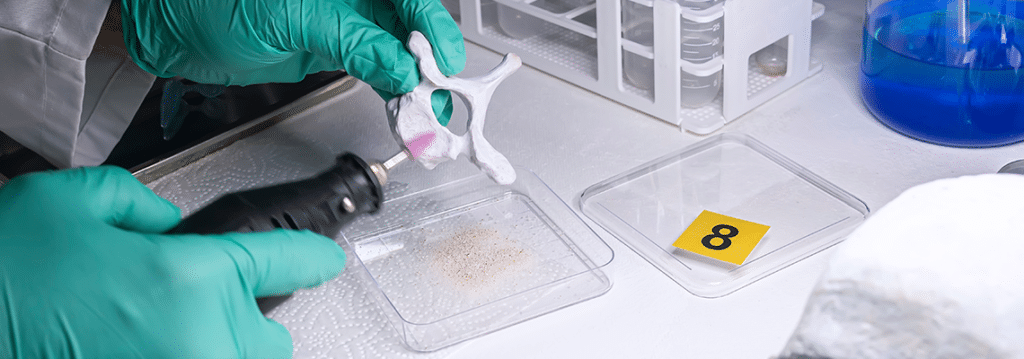Lab solutions part of answer for delay in justice for sexual assault
June 8, 2018
Many factors feed into the failure to deliver justice, but a primary issue is the lack of innovation in the rape kit itself. That’s why InnoGenomics is developing a quicker, more sensitive analysis in a product called SpermTrap. Our nanotechnology-derived matrix could enable investigators to obtain clean assailant profiles through a rapid procedure that’s compatible with tools and workflows common in today’s forensics labs.
“Our beta product is actually able to extract the sperm and return a higher yield—and do so more efficiently than the archaic systems that are still very much being used out there,” said Sudhir Sinha, Ph.D., CEO and President of InnoGenomics.
“In some instances, the volume of untested DNA evidence has outpaced the resources to test, process, and profile samples in crime labs,” according to RAINN, America’s largest anti-sexual violence organization. “This has led to evidence being stored at crime labs, but remaining untested for prolonged periods of time.”
A second issue is the well-established losses of genetic material that occur during mixture separation. The standard method requires multiple washes, centrifugations, and selective digests, which destroy some portion of the genetic material of the victim and assailant alike. In some cases, this method fails to enable generation of a conclusive profile from the male, thereby hampering the criminal justice system’s ability to identify and prosecute offenders.
“Labs still use this method because it’s the gold standard in the forensic world,” said Sinha. “But at the same time, it’s a very tedious, time-consuming process.”
At InnoGenomics, we hope to turn that process on its head by both decreasing material losses and increasing the ability to hone in on the perpetrator’s genetic material. SpermTrap will require less rounds of sample-washing and centrifugation.
Our intention is for the streamlined process to help reduce testing backlogs by empowering labs to turn around conclusive results at a faster pace. The solution is still in beta testing, and validation is being funded through the National Institute of Justice. We plan to commercialize by Q3 2018. To stay on top of announcements about our technology, follow InnoGenomics on Facebook or LinkedIn.

